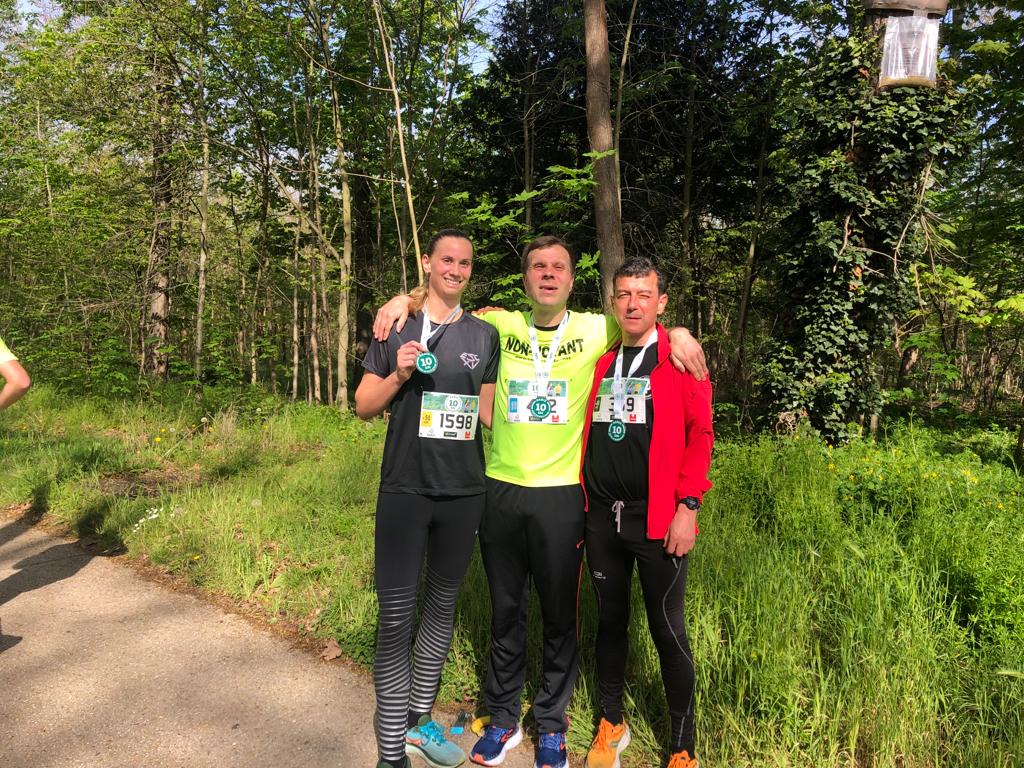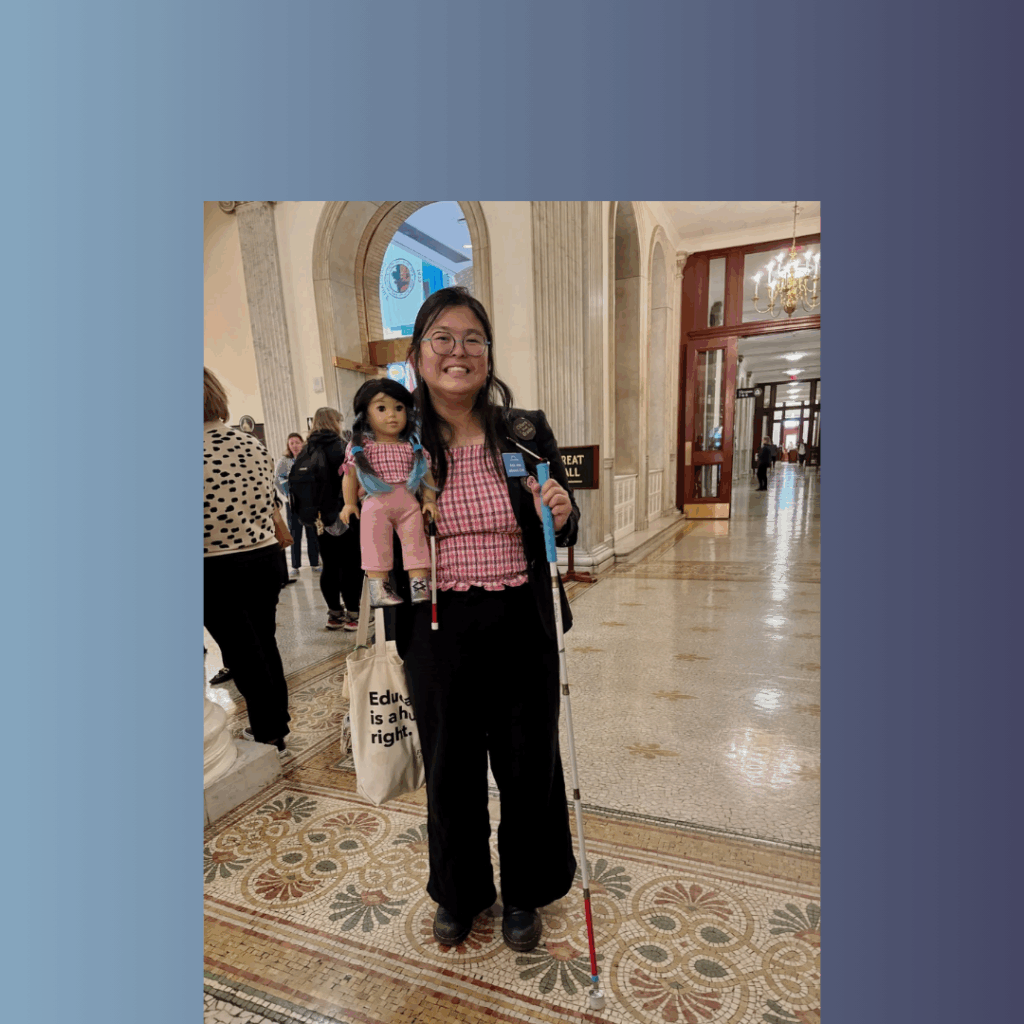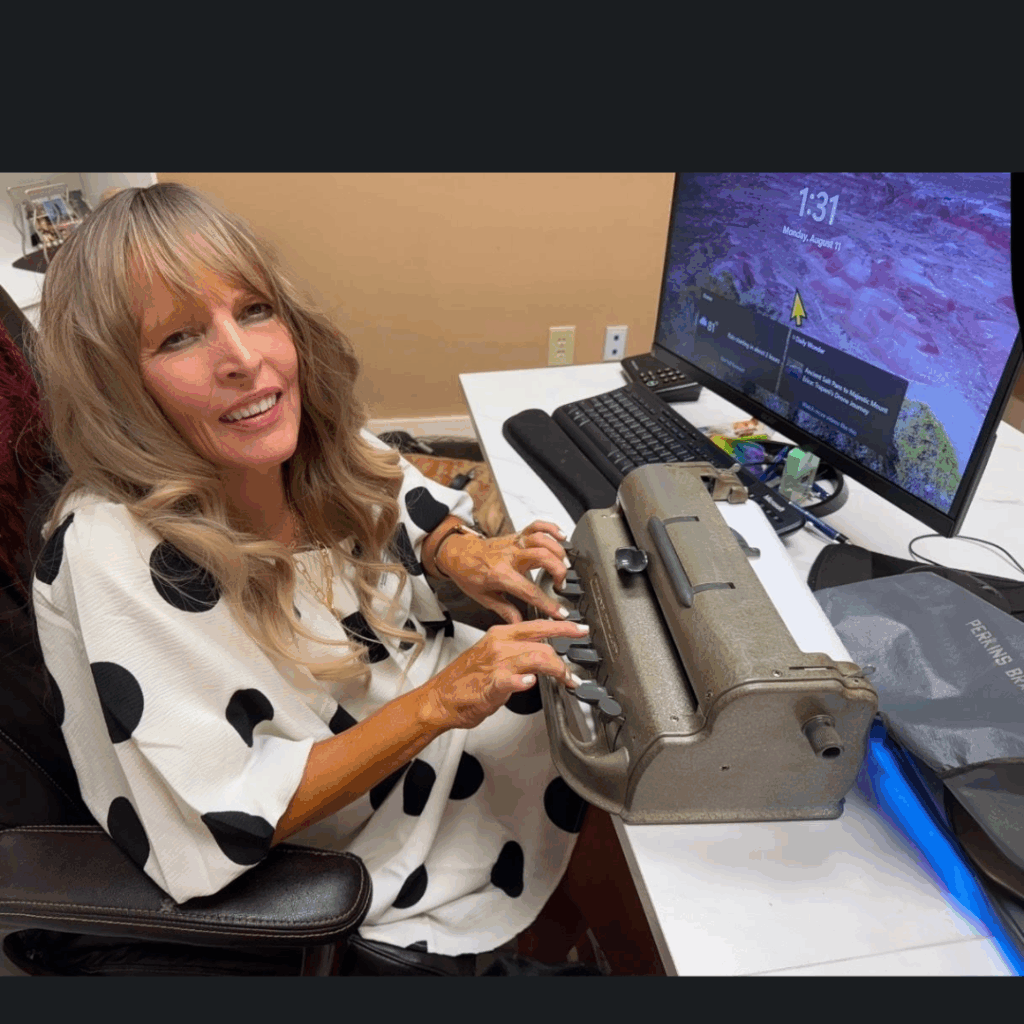With only a few adjustments for blind people like me, running – from a nice leisurely jog on a Sunday morning to long distances like a marathon – produces as much joy (and sweating!) as it does for anybody else.
I just need a guide who is connected with me through a short tether, and who is at least as fast as me and off we go!
In reality, the biggest challenge can be finding guides who are available in my neighborhood and at the time of my choice. But thanks to specialized groups, ordinary running clubs, or just sporty friends, I always manage to find someone.
The challenges and rewards of being a blind runner
Though I have always been doing sports, I only got to discover the beauty and the difficulty of running just before I turned 40.
Attracted by a popular local running event, the 20 KM of Brussels, I was fortunate enough to find a group of guides who started running with me on a regular basis. So, I was ready for my first-ever 20 K run!
Very much encouraged by that first experience, I did not stop there. Since then, I’ve taken part in, and finished four marathons – an overwhelming life experience I wish everyone could have.
Though it requires so much time, effort, and discipline, especially during the long months of training, the feeling of overcoming obstacles and of crossing the finish line is just so rewarding!
And the fact that as a blind runner, I have to go through this with a guide, it transforms an individual sport into a kind of a team experience.
As I write this, I am gearing up for upcoming challenges and hoping to beat my own personal records!
About the author
Lars Bosselmann is the Executive Director of the European Blind Union (EBU). He has more than 15 years of professional experience in the field of disability rights.
A political scientist by professional background, he has worked in Brussels for most of his career. In various roles, he promoted the rights of persons with disabilities in the development policies of the European Union.
Lars is a German national and, in addition to his mother tongue, speaks English and French. You can connect with him on LinkedIn.



